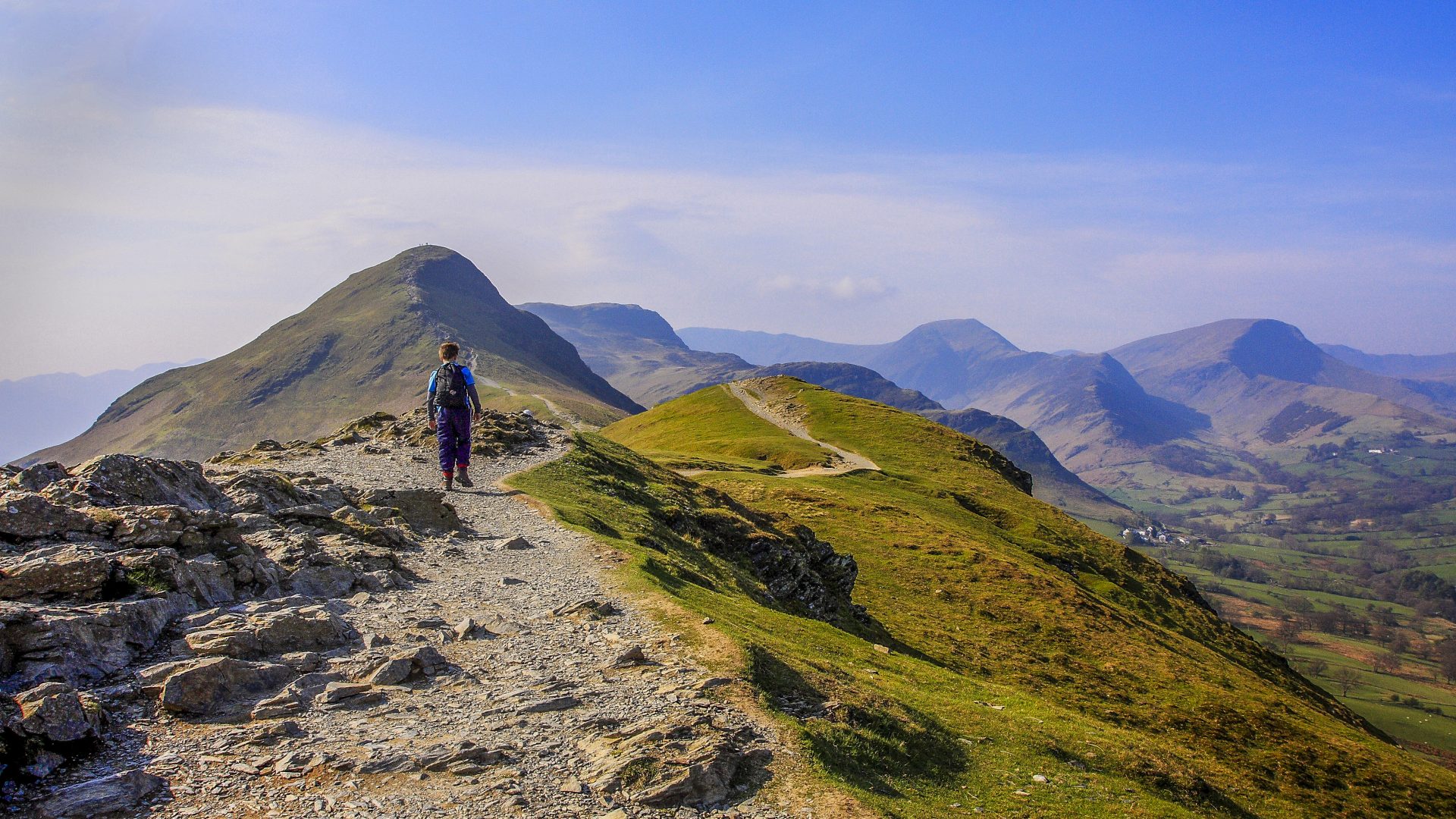
Forty fab years with Campaign for National Parks
Written by campaigner and Campaign for National Parks Trustee Kate Ashbrook.
Forty years ago, on 3 November 1983, I went to my first meeting of the executive committee of the Campaign for National Parks (CNP). I remained a member of the committee (now board of trustees) until 2019, and gladly returned in 2021.
I have little memory of that first meeting except that it was at the Council (now Campaign) for the Protection of Rural England’s offices at 4 Hobart Place, London SW1. At that time we faced the long-standing threats of quarrying, mining, afforestation, water storage, military training, and road schemes, alongside the newer issues of agricultural policy and conservation (particularly following the Countryside Commission’s uplands debate, for which CNP commissioned Malcolm McEwen and Geoffrey Sinclair to write New Life for the Hills), and the future of rural communities in the parks.
Most of those problems are still around today; the threats are more insidious but still just as serious, eating into the parks’ wilderness. The state of nature in the national parks is a big issue now, as is the future of farming, the inundation of second-home owners, and the failure of public bodies to give proper attention to these special places. The national parks are severely under-appreciated and underfunded by the Westminster government which has yet to act on the Glover Review (published in 2019). The Welsh Government does a little better, and is promoting a new national park in north-east Wales.
I have many good memories of times with CNP, the best being out in the parks of course. Visits with the All Party Parliamentary Group on national parks, national park societies’ conferences, and awaydays with trustees are a few examples.
I was at the national park societies’ conference in Snowdonia in 1999 when the idea of the wonderful Mosaic was born—a pioneering project to help black and ethnic people discover national parks. CNP won lottery funding to develop this, and it has a good legacy, in Peak District Mosaic for instance.
CNP has combined its project work with serious research, opportunities for debate, and light-footed campaigning. With its solid foundation in the Standing Committee on National Parks (born in 1935) it has championed the parks since their inception, seeing them in the wider context, as places where one can test ideas and then apply them to the world beyond. CNP’s council consists of 40 national bodies and national parks societies, representing over four million people who care about the parks; this provides an excellent opportunity to share ideas and experiences, and to lead new thinking.
Today I am excited about CNP’s youth project, New Perspectives, which will bring us a new generation of campaigners for the national parks. Very recently CNP has won an important amendment which is now in the Levelling Up and Regeneration Act (section 245(3)(b)), to ‘seek to further’ the purposes of the English national parks and areas of outstanding natural beauty, replacing the flabby ‘have regard to’ requirement in section 62 of the Environment Act 1995. We have been fighting for this for years and, thanks to CNP, it has been achieved. Now we need a process for holding public bodies to account.
CNP’s new strategy to 2028, Better, Equal, More, is one of the best, an ambitious model of clarity without clichés.
CNP has remained nimble and feisty, courageous, and outspoken. It is ever-stretched but takes every opportunity to speak out for the parks.
Now it is gearing up for next year’s 75th anniversary of the National Parks and Access to the Countryside Act, a chance to celebrate achievements but more importantly to look ahead to the national parks’ increasingly important role in offering relaxation and refreshment for the nation, combating the climate crisis, restoring nature, and securing exemplary landscapes for us all to enjoy—and to do so in ways which involve under-represented parts of society.
My 40 years with CNP have been a huge pleasure, because its work is so worthwhile and it never stands still. Thank you CNP; it is a joy to work with you.
